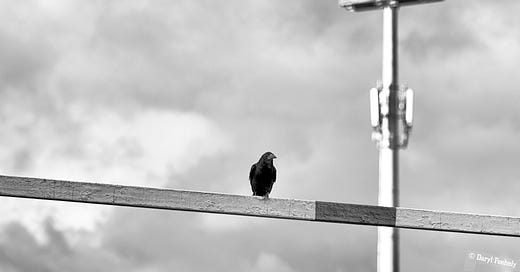For the last few years, I can’t shake the feeling that sport is becoming more like The Hunger Games and less like Invictus, a distraction from authoritarian atrocities rather than an inspirational showcase of collaboration and compromise.
We are killing our planet, and we only have about 6 years left to save ourselves from the worst of it, according to the IPCC synthesis report. In November 2022 Phoebe Plummer, the Just Stop Oil activist who threw soup on a Van Gogh painting to raise awareness for the Climate Emergency, challenged the presenter of Newsnight by saying:
“…you make time to report on the sport every day, why aren’t you telling people how bad it’s going to get?”
- Phoebe Plummer
The question has stuck with me since and has joined a series of chinks in the halo of sport that has pushed me to question the role of sport and our relationship with it.
Sport has always served a role of appeasement for the masses, in the “bread and circuses” Juvenal context, and in more recent times to incentivise the masses to spend their money. I’ve bought the jerseys and shouted at the TV for years along with everyone else, but the first chink in the halo of sport for me came when I read George Orwell’s essay “The Sporting Spirit” at the end of his book Notes on Nationalism. Given how he had seen sport used to further fascism & nationalism in the early 20th century, it’s not surprising that he describes sport as “war minus the shooting”.
Serious sport has nothing to do with fair play. It is bound up with hatred, jealousy, boastfulness, disregard of all rules and sadistic pleasure in witnessing violence: in other words it is war minus the shooting.
- George Orwell
Despite this illuminating truth from 1945 about many a national pass time, every four years since then we all shout for our country in our chosen sporting competition, be it the Olympics or the World Cups, safe in the illusion that sport is a haven from politics and strife, either in our every day struggles or in the fate of the planet. In between the big competitions, we have annual seasons, across multiple competitions, modes, codes, and sports, to keep us entertained perpetually.
It is very difficult not to sit back and travel on this sport rollercoaster, and in many ways it is very beneficial. We can use it as respite from the responsibilities of hyper-capitalism thrust on us all, by watching our favourite team play or following the line-up announcement news and post-match reactions each week. Sport offers a community to belong to, and for those involved in organising and those that play, there are the physical and mental health benefits.
The second chink in the halo of sport for me came during the COVID pandemic, when sporting fixtures were allowed to proceed without supporters present. In an attempt to hide the surreptitious variant of kayfabe that we all unknowingly partake in as spectators, the TV broadcasters added fake crowd noise to the matches. This blue pill moment created an uncanny valley that shunted me into questioning the whole social contract element of sport and society. At the time, I thought it was just lockdown messing with my head, again, but the more time passes, the more I understand why George Orwell wanted to piss in sport’s chips.
The final chink in the halo of sport came today, with the announcement of the merger between the PGA Tour and LIV golf. It is not an overstatement to say that with this merger, Saudi Arabia has bought the professional sport of golf. The same Saudi Arabia that kills journalists, continues to perpetrate human rights violations, objects to any meaningful agreements or progress during COPs, and has a vested interest in continuing the dominance of the fossil fuel industry for as long as possible despite the destruction it causes to the planet.
We even have a word to use to brush all of these and other disgusting behaviours under the carpet, to save us from repeating them every time. That word is sportswashing and with it, we all accept that sport can be used as a type of money laundering service for morals and reputation. It should come as no surprise though, it is just an extension of sport’s duties. We already use sport as the sand into which we stick our ostrich heads to avoid the real world, why not let dictators and autocrats enjoy sport’s cleansing features too on a larger scale? The inconvenient truth is they always have, we just have a new word for it.
But sport could be so much better. By taking the advice of Francois Pienaar in Invictus when he said “Times change, we need to change as well”, sport has an opportunity to step up and take climate action seriously. That would mean divestment from fossil fuel companies and their vested interests, promotion of sustainable business practices, removal or radical reduction in flights taken, and becoming a vehicle to promote education and responsibility around climate action and sustainability. A place where Just Stop Oil and others can promote climate action without needing to disrupt proceedings, a safe space to discuss the end of the world. There’s no sport on a dead planet and without climate action, then the odds are definitely not ever in our favour.
Three months ago, French TV stations started adding climate emergency context to their weather forecasts. That’s a good step, but despite a Code Red for Humanity being issued in 2021, the weather forecast still comes after the sports bulletin.
Spectator, May 1, 2016



